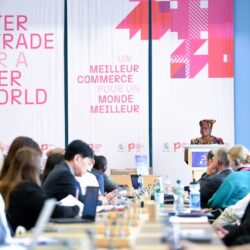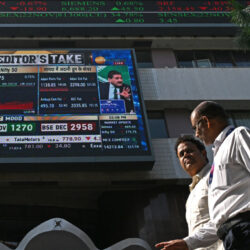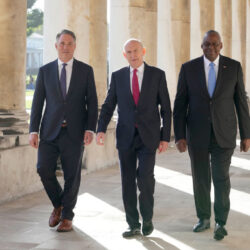
If recent developments from the Israeli-Hamas and Russia-Ukraine conflicts have taught us anything, it is that the U.N. Security Council (UNSC) is not achieving its core mandates of maintaining global peace and security. This paralysis is partly due to limited cooperation, recurrent stalemate among the council’s five permanent members (P5) and instances of the alleged abuse of veto power. Aside from the adoption of Resolution 1991, which increased non-permanent seats from six to 10 in 1963, subsequent proposals like the Razali Plan of 1996-97 and Kofi Annan’s “In Larger Freedom Agenda” failed to come to fruition. The calls for UNSC reforms continue unabated and have created numerous coalitions either supporting or opposing such changes.
What Are These Proposed Reforms?
Pro-reform coalitions like the Group of Four (G4) countries, the African Group, the L69 group, Group of Arab States, and CARICOM (the Caribbean Community) have made calls for an enlarged UNSC that reflects changing global dynamics and diversity. Specifically, these coalitions are advocating for the expansion of permanent and non-permanent seats with fully accorded privileges and responsibilities for new member states. Expressly, the G4 + 2 (Africa) recommends the extension of veto power to all six newly proposed permanent seats. The second desired reform is to the working methods of the UNSC to check the “abuse” of the veto by the P5 and to allow more countries to share the burden by formalizing pen-holding rights to ensure that non-permanent members could hold the presidency.
Implications of Reform
Adopting these proposed reforms would help revive the UNSC’s declining credibility. First, an enlarged UNSC would give agency to some states that would be privileged to be elected to the newly created permanent seats. Second, expansion would ensure balanced representation and promote global diversity and transparency within the institution. By design, the current permanent body of the UNSC is prone to deadlock. It is thus fair to argue that reforms aimed at extending veto privileges to new permanent seats must embrace a proposed arrangement that would require the accumulation of “no” votes from more member states to quell the arbitrary use of the privilege by the existing design. Most of the P5 countries have agreed in principle and backed the calls for reforms but are wary of debates around the limitation or extension of veto power to new permanent members. It is not a secret that the individual interests of the current P5 are fueling this hesitant behavior. Their pushback against attempts to dilute their power is a natural response.
Unlike the G4+2, the Uniting for Consensus group has explicitly opposed the extension of the veto to new permanent members because the group believes it would undermine the effectiveness of the institution. Contrary to these claims, giving out more vetoes could help neutralize the abuse of veto. An extension of vetoes could make the institution more effective if a compromise were reached in adopting a framework where at least a two-thirds majority can overturn an initiated veto. This will entail reforming the very idea of what a veto is by eliminating its potential for unilaterally overriding the will of the rest of the Security Council. Another alternative could be a scenario where a cast veto would require at least additional supportive negative votes from other members. It would be politics as usual if the call for expansion is adopted without proper reform to the meaning of the veto.
Who sits in the newly proposed seats would likely lead to polarization within the regional blocs. Africa, with its high diversity, would be left to settle on a choice between economic strength or population size. Regional rivalries and geopolitical interests among countries may equally affect the bidding of others. For instance, India’s permanent seat bid faces strong opposition from China due to regional rivalries. Similar dynamics would likely play out in other regions.
There are large obstacles on the path to UNSC reform. However, a vast majority of U.N. members recognize the need for reforms. The world is in turmoil as the global order is destabilized by the changing balance of power, environmental threats, and pandemics. It needs a powerful and effective U.N. and UNSC. Neither is possible without reforms.
Beth Bechdol (on screen), Deputy Director-General of the Food and Agriculture Organization of the United Nations (FAO), addresses the Security Council meeting on protection of civilians in armed conflict in Sudan.





